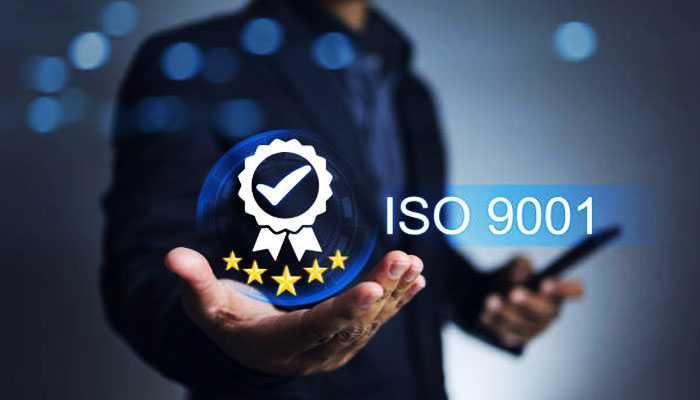Are there any entrepreneurs who don’t dream of resting assured knowing that their business boasts the most renowned ISO 9001 certification and valuable quality management standards to date, having established a priceless and lasting level of credibility with clients? After all, consumers willingness to shake hands with a business is the cornerstone of the organization, for everything eventually boils down to the customer retention rates and the long-term brand image planted.
Boundless organizations and businesses across multiple industries have achieved their ISO 9001 certification to ensure clients of their quality management commitments, including environmental organizations, tech companies, healthcare institutions, NGOs, and more. One of the best things about this standard confirming loyalty to the quality of services and products is that they’re easily discoverable, for certificate possessors can simply state this achievement on their promotional materials or websites. As an international standard, it’s only normal to wonder if your business could be eligible to receive the certificate, if the results are worth the costs and efforts, and if it will serve you well down the road.
So, which industries should businesses consider getting ISO 9001 certification, and would it make sense for a one-man business or self-employed person to achieve such a standard? What are the ISO 9001 requirements for your business, and how difficult are they to implement?
Would getting certified make sense for your business?
Evidently, the starting point for determining whether an ISO standard is a profitable fit for you is establishing whether it represents your specific needs and client category. If your organization participates in some of the following, you’re encouraged to adapt your operational processes to meet all ISO 9001 requirements.
1. Restaurants, eateries, coffee shops, and other firms in the food and beverage field must ensure the offerings quality, safety, and consistency
2. Construction businesses to enhance the whole quality of operations through better project management and safety
3. Clinics, hospitals, and healthcare providers to improve administrative operations and patient care quality
4. Manufacturing companies for a guarantee of their products and production processes quality
5. Aerospace manufacturers and services to keep standards for products and services high
6. Educational organizations, universities, and schools to enhance education quality
7. Different NGOs to improve management systems and fulfil goals more efficiently
8. Environmental organizations for better eco-oriented practices
9. Government agencies to enhance services efficiency.
What can you gain from this international endorsement?
In this quality-centric world where expectations are ever-rising, clients prefer organizations with flawless support and service over anything else. While it’s easy to learn the essentials about credential requirements, documents needed, deed marketing, audits, company training, and more, predicting future advantages could be a guessing game, so let’s see what you can broadly expect from your ISO 9001 completion.
1. Worldwide recognition as ISO 9001 is applicable to businesses ranging from Asian to European to American, which enhances international career prospects in multiple industries and regions.
2. Better quality management as you’ll have a framework to set a solid QMS, improving service and product quality
3. Upped risk management as you’ll learn to operate in risky and challenging circumstances
4. Consistency in outputs and processes owing to their standardizations, which is all the more crucial for firms with more divisions or locations
5. Better partner and supplier relationships due to your enhanced commitment to quality that ensures stakeholders of your responsibility and reliability
6. More efficient compliance with your niche’s regulations and standards and enhanced savings.
But what if I’m a one-person firm or self-employed worker?
Evidently, many may doubt whether an ISO 9001 certification brings invaluable advantages to those working by themselves or for themselves, excepting a few extra employees. Luckily, it’s not just small-to-medium businesses that can leverage such international endorsement, but also if you’re an individual looking for professional and personal development to unlock new opportunities for your business, whether they’re local or global. So, let’s see what you may receive after getting ISO 9001 certified.
1. Staff skilling as employees achieve a deeper understanding of quality management system practices and principles, obtaining new knowledge in compliance, risk management, and other areas.
2. Enhanced employability as certificate possessors become more marketable, whether you’re after managerial or leadership positions.
3. Viral and direct appeal to clients as the possessing business appears to be more credible, reliable, and quality-oriented.
4. There are numerous networking opportunities as individuals are more easily able to contact peers whose priorities are constant evolution and quality.
How long does it take to achieve ISO 9001 certification?
One of the main questions to seek answers to before jumping on training, preparation, internal audits, and everything that ISO 9001 credentials necessitate, is unexaggeratedly related to the time needed. Time equals money, and optimistically, ISO 9001 certification granting takes several months when working with suitable means.
Generally, completely outsourcing the tasks and leaving them to the best experts can achieve the endorsement within two to three months, which is substantially advantageous for employers who need swift certification or are better off not investing in the needed tools.
For small-to-medium companies that’d instead conduct the tasks in-house, the right help can help them achieve their credentials within several months to a year. Here, it’s similarly essential to shake hands with the right team who can help you achieve your goals faster and cheaper.
Last but not least, expect to spend two to six months gaining this credential if you need to overhaul your firm, have specific, unique requirements and needs, and are properly assisted by pertinent specialists.
Summing it up
Everyone knows how much weight the term “quality” holds for businesses and clients alike. It is the only value around which one can build a culture that will position the brand as reliable in the long run. Savvy businesses and organizations of any size achieve ISO 9001 certification to improve quality management, regardless of the sector or industry.
Any organization can gain this credential, better meet regulatory standards, underscore the endorsement to gain clients trust, and, therefore, leverage it as a selling point for the offerings—precisely when approached correctly!




